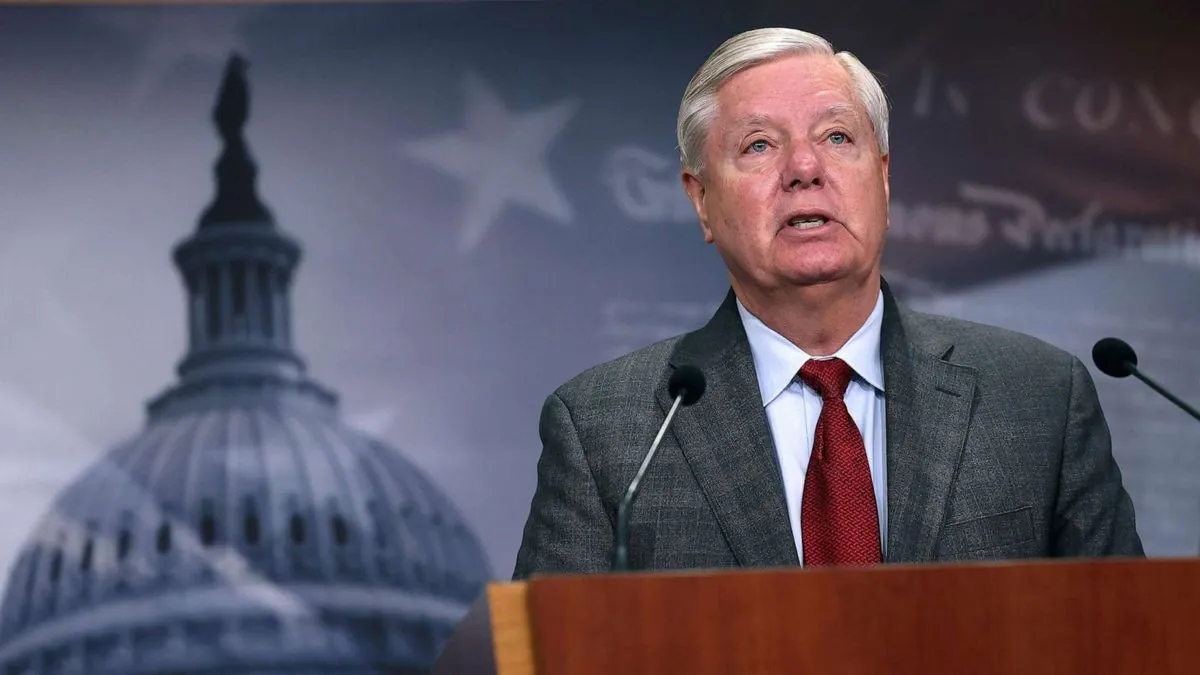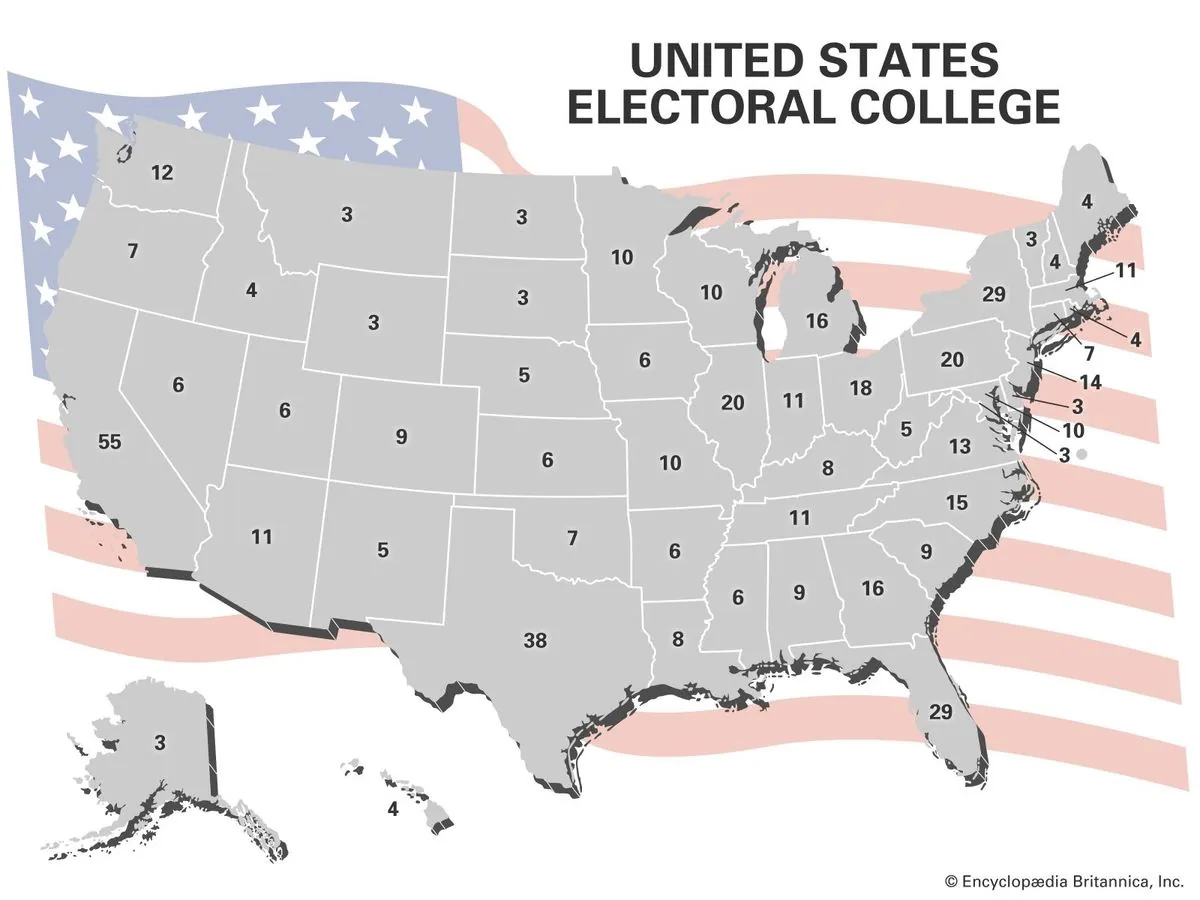Graham's Nebraska Electoral Proposal Sparks Debate on Democracy
Senator Lindsey Graham's suggestion to change Nebraska's electoral vote allocation system has ignited discussions on electoral fairness and democratic processes, potentially impacting future presidential elections.

Lindsey Graham, Republican Senator from South Carolina, recently proposed a significant change to Nebraska's electoral vote allocation system during an appearance on NBC News's "Meet the Press". This suggestion has sparked a heated debate about electoral fairness and the democratic process in the United States.
Graham's proposal involves altering Nebraska's current system, which allocates some electoral votes by congressional district, to a winner-take-all approach. This change would effectively award all of Nebraska's electoral votes to the candidate who wins the state's popular vote. The Senator argued that this modification could be crucial in determining the outcome of future presidential elections.
The Electoral College, established in the U.S. Constitution, consists of 538 electors. A presidential candidate needs 270 electoral votes to secure victory. Nebraska and Maine are currently the only two states that split their electoral votes, a system that has been in place since the 1970s.
Graham framed this proposed change as a democratic process, comparing it to the Democratic Party's nominee shift earlier this year. However, critics argue that this move is primarily aimed at benefiting the Republican Party and its potential nominee, Donald Trump.
The implications of such a change extend beyond Nebraska. An analysis of potential electoral scenarios reveals that altering Nebraska's system could significantly impact the outcome of a close election. Currently, there are 71 scenarios where the Democratic candidate could win the presidency, assuming voting patterns similar to the 2020 election in most states. If Nebraska adopts Graham's proposed system, these scenarios would decrease to 70.

It's important to note that the Electoral College system has been a subject of controversy in American politics. Five U.S. presidential elections have resulted in a mismatch between the electoral college and popular vote, with the most recent occurrence in 2016. This discrepancy has led to ongoing debates about the fairness and representativeness of the current system.
The proposed change in Nebraska is not occurring in isolation. Recent population shifts, reflected in the 2020 census, have already altered the distribution of electoral votes among states. This redistribution has generally favored states in the South and Southwest, potentially giving an advantage to Republican candidates.
Critics of Graham's proposal argue that such changes, combined with the existing Electoral College system, could further distort the relationship between the popular vote and electoral outcomes. They contend that a candidate could potentially win the presidency without securing the majority of the national popular vote, a scenario that has occurred in recent history.
Defenders of the Electoral College system, however, maintain that it serves to balance the interests of high-population and low-population states, preserving the federal character of the nation. They argue that a pure popular vote system could lead to campaigns focusing solely on densely populated urban areas, neglecting the concerns of rural states.
As this debate unfolds, it's worth noting that the Constitution does not require electors to vote according to the popular vote in their states. However, in 2020, the Supreme Court ruled that states can punish "faithless electors" who break their pledge to vote for the candidate who won their state's popular vote.
The discussion surrounding Graham's proposal highlights the ongoing tension between state-level electoral policies and national election outcomes. It also underscores the complex interplay between popular democracy and the federal structure of the United States, a debate that has persisted since the nation's founding.
As the 2024 presidential election approaches, the potential impact of such electoral system changes will likely remain a topic of intense scrutiny and debate among politicians, analysts, and the American public.


































